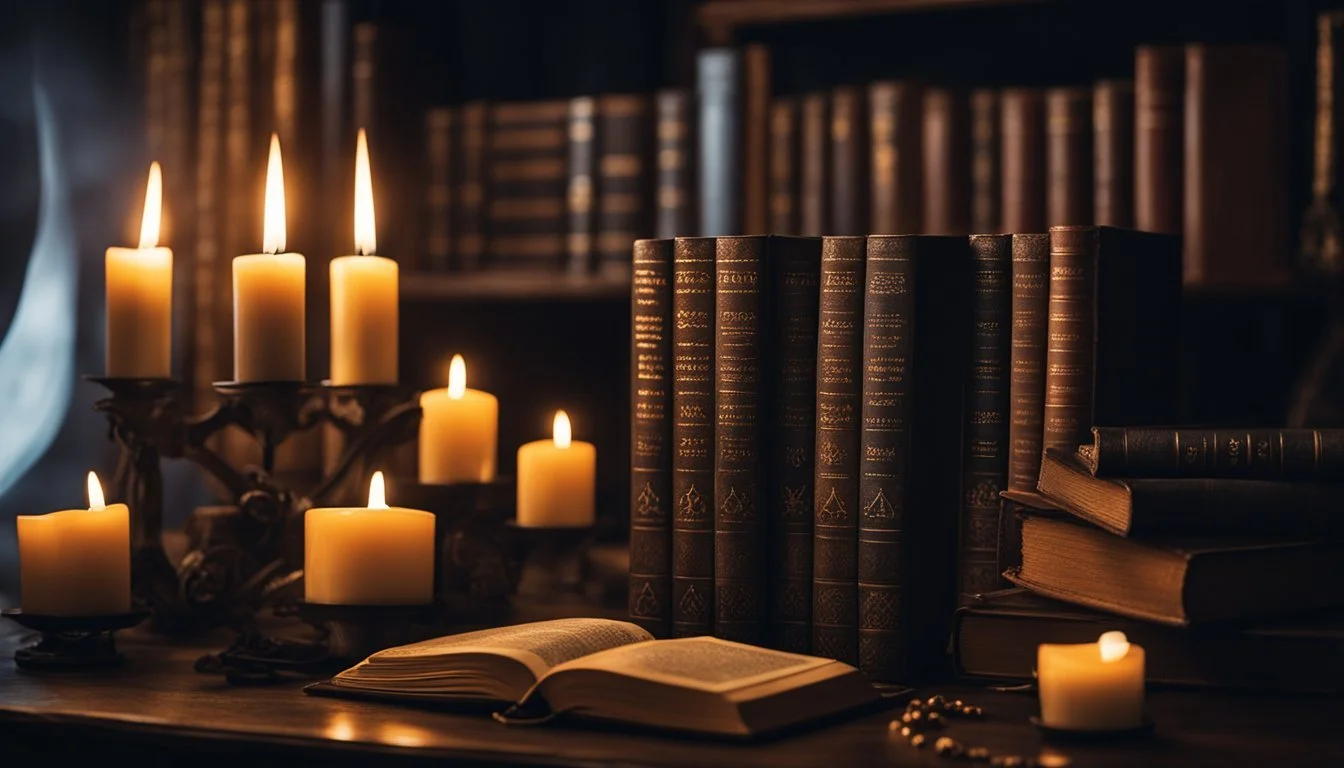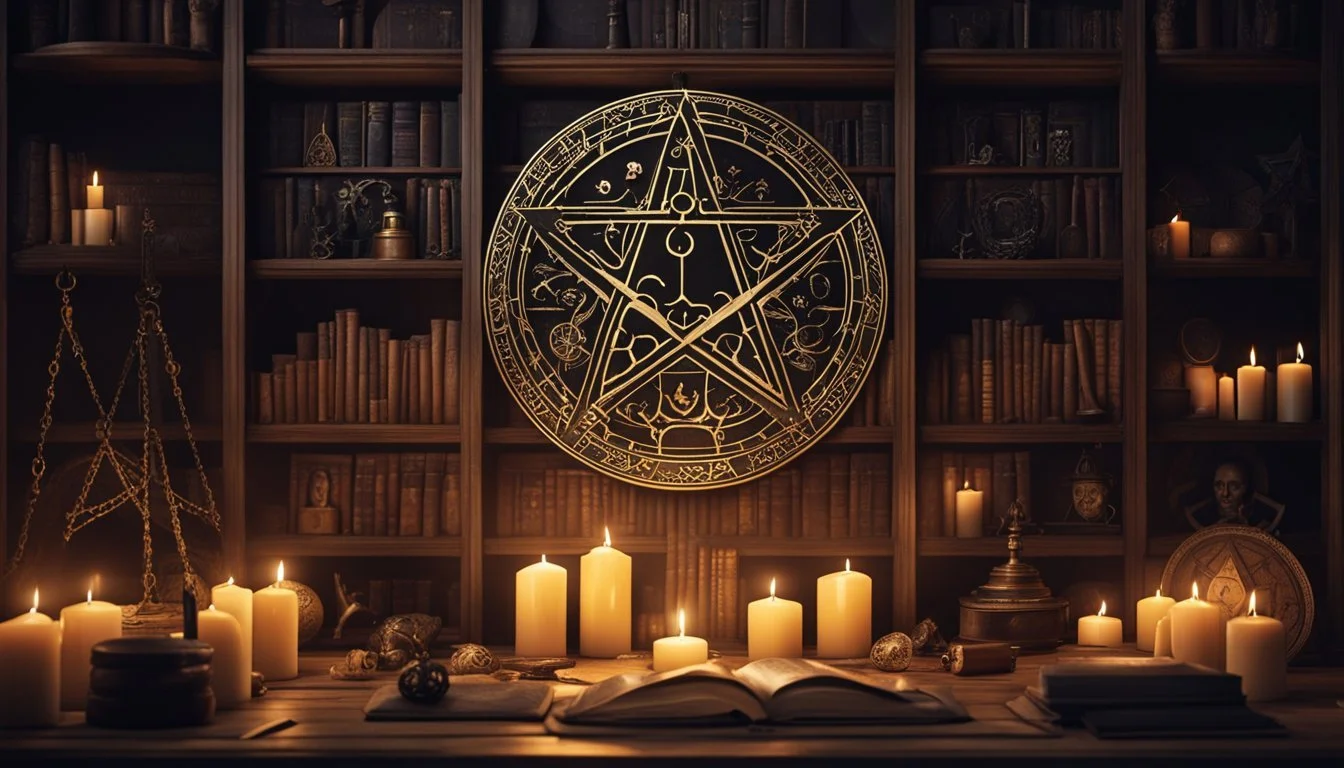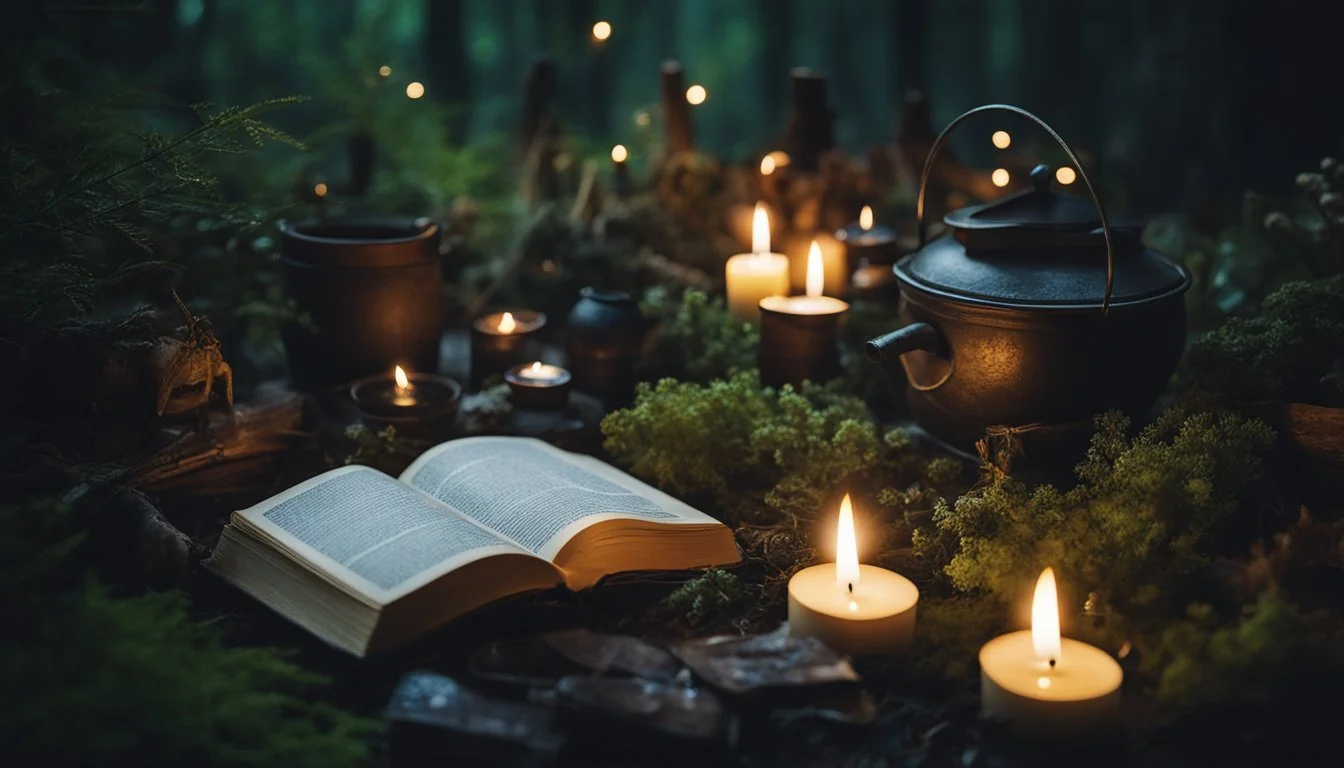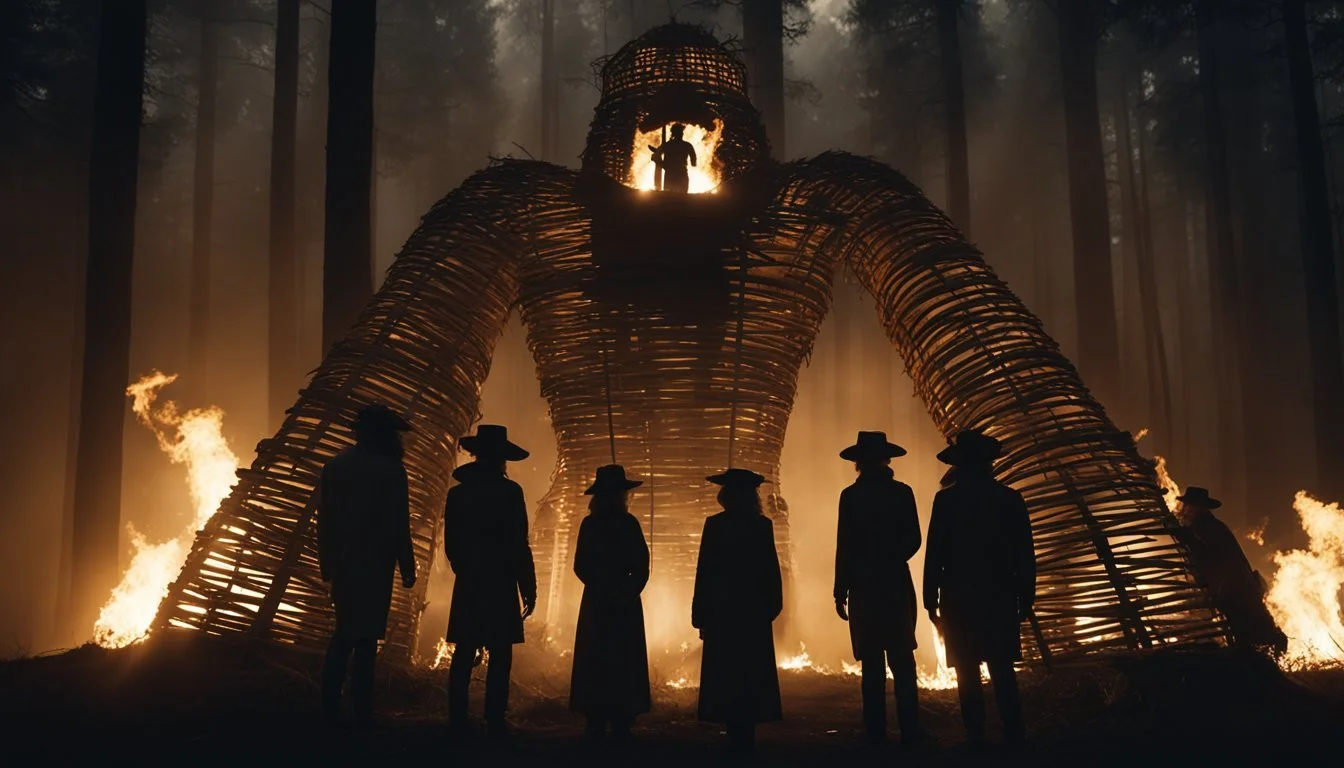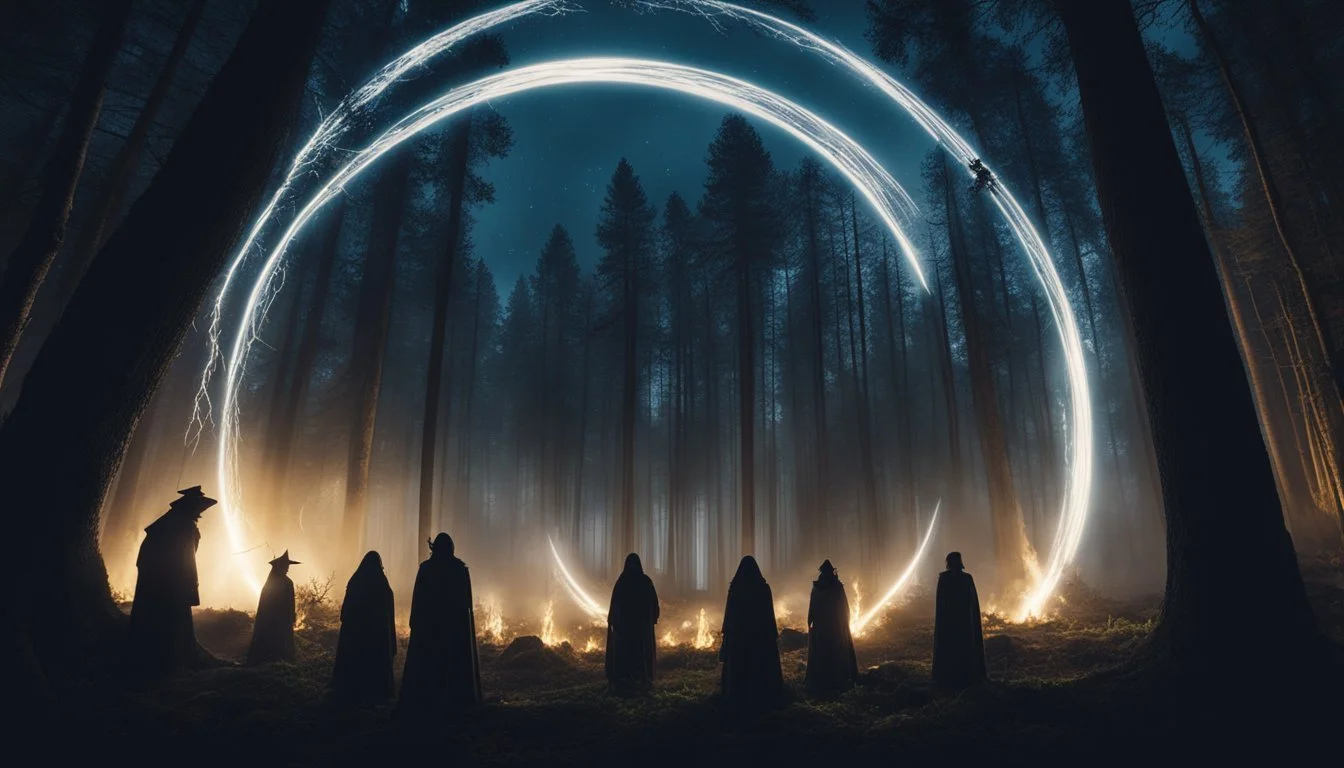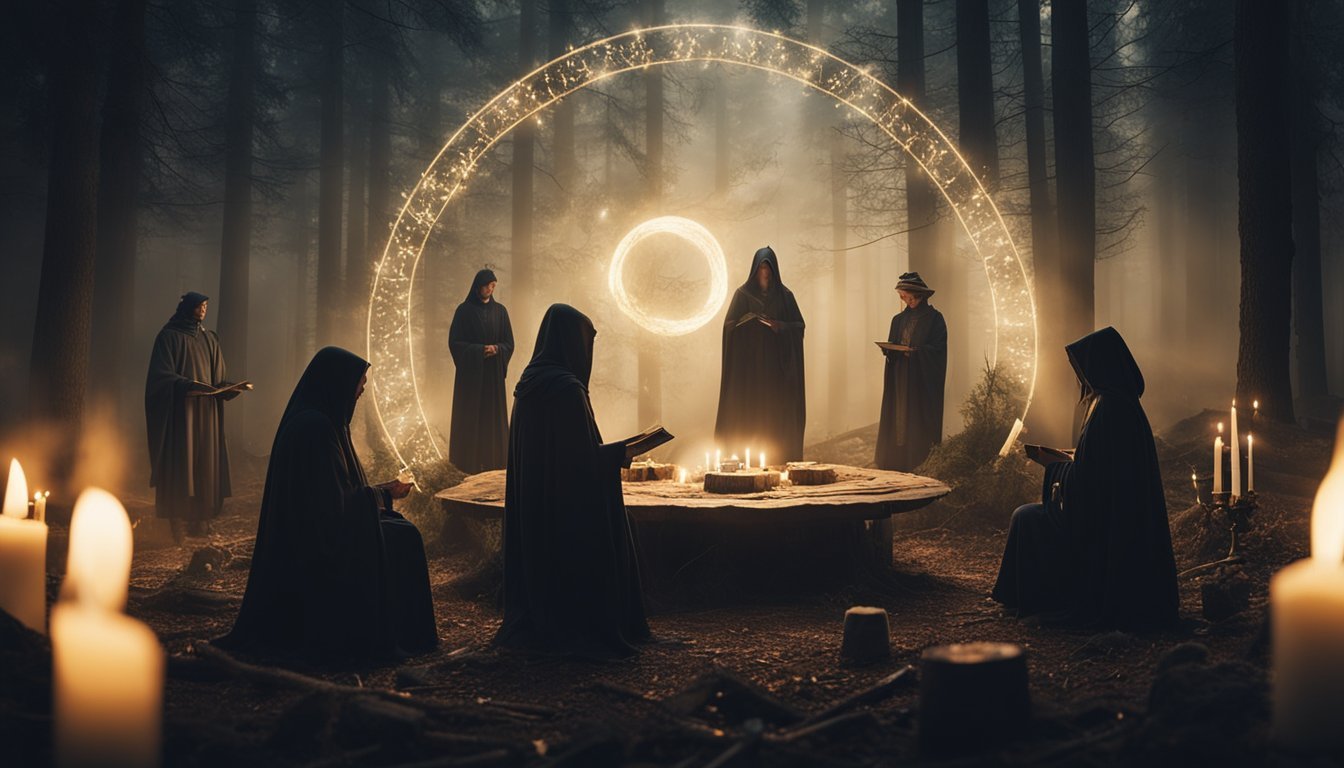6 True Crime Documentaries About Wiccan Covens
Uncovering Hidden Mysteries
Wiccan covens, with their intricate rituals and deep-seated histories, often captivate the imagination. The world of true crime documentaries delves into this fascination, unearthing tales that intertwine mystery, belief, and the criminal underworld.
These documentaries provide a riveting look at the darker side of Wiccan covens, exploring real events that blur the line between legend and reality. From allegations of witchcraft to actual criminal acts, viewers are guided through a compelling blend of history and modern-day intrigue.
1) "Hail Satan?" by Penny Lane (2019)
"Hail Satan?" is a documentary directed by Penny Lane. It explores The Satanic Temple and its efforts to advocate for religious freedom and the separation of church and state.
The film, released in 2019, premiered at the Sundance Film Festival. It uses humor and activism to follow members of The Satanic Temple as they challenge corrupt authority and promote their values.
The documentary sheds light on the group's origins and its modern-day campaigns. Interviews with key members offer insights into their beliefs and strategies for activism.
Lane's work presents the Temple not as a group focused on dark rituals but rather on social justice. The film portrays their activities as cleverly designed to provoke thought and inspire change.
For more information on "Hail Satan?," visit Wikipedia or IMDB.
2) "The Occult: Investigating Occult Crimes" by Bill Ellis (2014)
Bill Ellis's documentary, "The Occult: Investigating Occult Crimes," dives into the shadowy world of occult practices and their link to criminal activities. Released in 2014, this film provides an analytical look at how occult beliefs can influence actions leading to criminal behavior.
Through interviews and case studies, the documentary examines real instances where occult rituals were tied to crimes. Experts in criminology and folklore offer insights into the psychological and societal aspects of these acts.
The film features detailed investigations into specific cases involving Wiccan covens and other occult groups. It aims to separate fact from fiction, addressing common misconceptions while highlighting genuine areas of concern.
For more information, visit The Occult: Investigating Occult Crimes - IMDb.
3) "Dark Sister: The Witchcraft of Carol Myers" (2019)
"Dark Sister: The Witchcraft of Carol Myers" is a gripping documentary focusing on the life and practices of Carol Myers, a prominent figure in a Wiccan coven.
Exploring her deep involvement in the world of witchcraft, the film provides insights into the rituals she performed and the influence she wielded over her followers.
The documentary delves into the mysterious circumstances surrounding her rise to prominence and the controversies that followed her.
Interviews with former coven members and experts on Wiccan practices help to paint a detailed picture of her life and activities.
The film is particularly notable for its in-depth portrayal of the intersection between modern Wicca and true crime elements, making it a unique addition to the genre.
For more information, visit the IMDb page for "Dark Sister: The Witchcraft of Carol Myers".
4) "Witches: A Century of Murder" (2015)
"Witches: A Century of Murder" is a documentary that delves into the witch trials of the 1600s.
The film explores the disturbing spread of paranoia and fear that gripped communities, leading to numerous men and women being accused of witchcraft.
Through various forms of torture, many were coerced into confessing to crimes they did not commit, such as curses and meetings with the devil.
For more information, visit IMDb.
5) "Witch Hunt: The Real-Life Story of the Wicker Man" (2019)
This documentary offers an in-depth look into the true events that inspired the classic horror film "The Wicker Man."
Exploring the lives and practices of Wiccan covens, this film reveals the cultural and societal influences on the original story.
Interviews with historians, Wiccan practitioners, and relatives of those involved provide unique perspectives and factual insights.
Archival footage and historical documents are examined to understand the context of the events better.
Released in 2019, the documentary blends investigative journalism with historical analysis, making it a significant work for true crime and Wiccan history enthusiasts.
For more information, visit the IMDb page.
6) "Coven: Journey Into Witchcraft and Wiccan Magic" (2022)
"Coven: Journey Into Witchcraft and Wiccan Magic" explores the historical and contemporary practices of Wiccan covens. The documentary offers intimate insights into the lives of modern practitioners as they navigate their spiritual paths.
The filmmakers interview well-known Wiccans and showcase rituals and ceremonies. The film highlights the community's diversity, featuring stories from different geographical regions.
This documentary also delves into common misconceptions about Wicca, aiming to educate the public. It provides a balanced view of the positive aspects and challenges faced by the Wiccan community.
Released in 2022, it became a valuable resource for those interested in alternative spiritual practices. More information
Historical Context of Wiccan Covens
Wiccan covens have a rich history that dates back to ancient traditions. The key points to explore are the origins and evolution of Wicca, as well as its specific practices and beliefs.
Origins and Evolution
Wicca, as a modern pagan religion, traces its roots to the early to mid-20th century. Gerald Gardner, considered the father of modern Wicca, was pivotal in bringing these beliefs into public consciousness. In the 1950s, Gardner published works detailing his practices, claiming they were based on age-old European pagan traditions.
Wicca evolved from these early influences into various traditions, often known as Garderian and Alexandrian Wicca. Newer branches continue to emerge, showing influences from other spiritual practices and modern interpretations.
The religion gained further traction through the counterculture movements of the 1960s and 1970s. It became particularly prominent in the United States and the United Kingdom, leading to its current diverse and widespread presence.
Practices and Beliefs
Wiccan practices revolve around rituals conducted in covens, typically consisting of 13 members. The rituals often celebrate the cycles of the moon and the changing seasons, aligning closely with nature. Common ceremonies include the Sabbats and Esbats, marking solstices, equinoxes, and lunar phases.
Beliefs within Wiccan covens incorporate reverence for deities, often represented as the God and Goddess. The practice of magic, seen as a natural force harnessed for positive outcomes, is central. This is often done through spellwork and herbalism, grounded in the ethical guideline of the Wiccan Rede, which promotes causing no harm.
These practices reflect a deep connection to nature and an ethical stance that emphasizes balance and responsibility. Wiccans seek personal growth and spiritual enlightenment, often through meditative and nature-based practices.
Portrayal of True Crime in Media
True crime documentaries have a significant influence on public perception and raise important ethical questions. These productions shape how viewers understand crime, justice, and societal issues.
Impact on Public Perception
True crime documentaries can deeply affect how audiences perceive criminal behavior and the justice system. They often highlight rare and sensational cases, leading viewers to overestimate the prevalence of such events.
This skewed perception can result in heightened fear and mistrust. Furthermore, the portrayal of suspects and victims can influence societal biases, potentially cementing stereotypes. These documentaries can also impact how people view law enforcement practices, either bolstering confidence or fostering skepticism regarding police efficacy.
Ethical Considerations
The ethical concerns surrounding true crime media are vast. Documentaries often walk a fine line between informative storytelling and exploitation of real-life tragedies. Respecting the privacy and dignity of victims and their families is paramount.
Moreover, the dramatization of events must balance accuracy with sensitivity. Misrepresentation of facts can lead to public misinformation and tarnish reputations. Ethical producers strive to present all sides of a story fairly, avoiding undue bias or sensationalism. Balancing these priorities is essential to maintain the integrity and respectability of true crime media.


